Related Research Articles

The Trial is a novel written by Franz Kafka in 1914 and 1915 and published posthumously on 26 April 1925. One of his best-known works, it tells the story of Josef K., a man arrested and prosecuted by a remote, inaccessible authority, with the nature of his crime revealed neither to him nor to the reader. Heavily influenced by Dostoevsky's Crime and Punishment and The Brothers Karamazov, Kafka even went so far as to call Dostoevsky a blood relative. Like Kafka's two other novels, The Castle and Amerika, The Trial was never completed, although it does include a chapter which appears to bring the story to an intentionally abrupt ending.
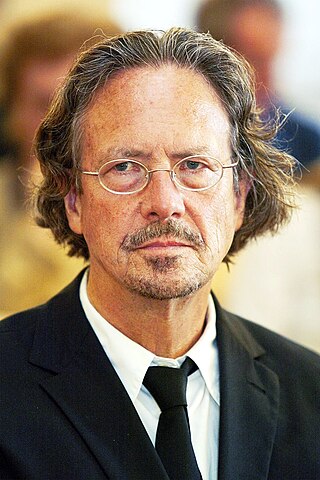
Peter Handke is an Austrian novelist, playwright, translator, poet, film director, and screenwriter. He was awarded the 2019 Nobel Prize in Literature "for an influential work that with linguistic ingenuity has explored the periphery and the specificity of human experience." Handke is considered to be one of the most influential and original German-language writers in the second half of the 20th century.
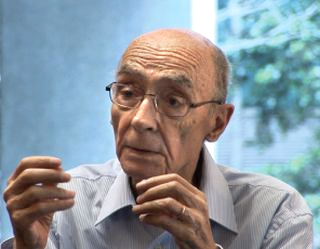
José de Sousa Saramago was a Portuguese writer. He was the recipient of the 1998 Nobel Prize in Literature for his "parables sustained by imagination, compassion and irony [with which he] continually enables us once again to apprehend an elusory reality." His works, some of which can be seen as allegories, commonly present subversive perspectives on historic events, emphasizing the theopoetic human factor. In 2003 Harold Bloom described Saramago as "the most gifted novelist alive in the world today" and in 2010 said he considers Saramago to be "a permanent part of the Western canon", while James Wood praises "the distinctive tone to his fiction because he narrates his novels as if he were someone both wise and ignorant."

Berndt Andreas Baader, was a West German communist and leader of the left-wing militant organization Red Army Faction (RAF) also commonly known as the Baader-Meinhof Group.
This article contains information about the literary events and publications of 1705.

Péter Esterházy was a Hungarian writer. He was one of the best known Hungarian and Central European writers of his era. He was called a "leading figure of 20th century Hungarian literature", and his books were considered to be significant contributions to post-war literature.
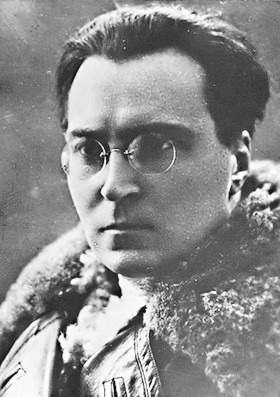
Victor Serge, born Victor Lvovich Kibalchich, was a Russian writer, poet, Marxist revolutionary and historian. Originally an anarchist, he joined the Bolsheviks five months after arriving in Petrograd in January 1919 and later worked for the Comintern as a journalist, editor and translator. He was critical of the Stalinist regime and remained a revolutionary Marxist until his death. He was a close supporter of the Left Opposition and associate of Leon Trotsky.According to, William Giraldi, Serge's novels may be "read like an alloy of" George Orwell and Franz Kafka: "the uncommon political acuity of Orwell and the absurdist comedy of Kafka, a comedy with the damning squint of satire, except the satire is real." In his studies of Serge, Richard Greeman described him as a Modernist writer influenced by James Joyce, Andrei Bely and Freud; Greenman also believed that Serge, although writing in French, continued the experiments of such Russian Soviet writers as Isaac Babel, Osip Mandelstam and Boris Pilnyak and poets Vladimir Mayakovsky and Sergei Yesenin. He is remembered as the author of novels and other prose works, memoirs and poetry. Among his novels chronicling the lives of Soviet people and revolutionaries and of the first half of the 20th century, the best-known is The Case of Comrade Tulayev. Nicholas Lezard calls the novel " of the great 20th-century Russian novels" that follows the traditions of "Gogolian absurdity".

Moacyr Jaime Scliar was a Brazilian writer and physician. Most of his writing centers on issues of Jewish identity in the Diaspora and particularly on being Jewish in Brazil.

José Eduardo Agualusa Alves da Cunha is an Angolan journalist and writer of Portuguese and Brazilian descent. He studied agronomy and silviculture in Lisbon, Portugal. Currently he resides in the Island of Mozambique, working as a writer and journalist. He also has been working to establish a public library on the island.

Peter Temple was an Australian crime fiction writer, mainly known for his Jack Irish novel series. He won several awards for his writing, including the Gold Dagger in 2007, the first for an Australian. He was also an international magazine and newspaper journalist and editor.
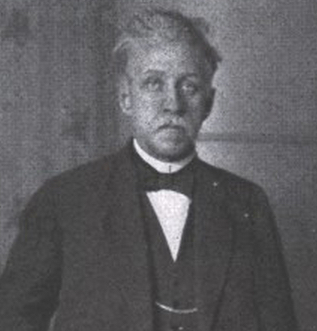
Pēteris Stučka, sometimes spelt Pyotr Stuchka;, was a Latvian jurist and communist politician, leader of the pro-Bolshevik puppet government in Latvia during the 1918–1920 Latvian War of Independence, and later a statesman in the Soviet Union.

Anthea Bell was an English translator of literary works, including children's literature, from French, German and Danish. These include The Castle by Franz Kafka, Austerlitz by W. G. Sebald, the Inkworld trilogy by Cornelia Funke and the French Asterix comics with co-translator Derek Hockridge.
David Chotjewitz is a German writer and theatre director who lives in Hamburg.
Brian Oliver Murdoch is a British philologist who is Emeritus Professor of German at the University of Stirling. He specializes in the study of early Germanic and Celtic literature, on which he has authored and edited several influential works.
Rhina is a village in eastern Hesse, Germany, belonging to the Haunetal municipality within the district of Hersfeld-Rotenburg. In 2004, the population of Rhina consisted of 509 residents.
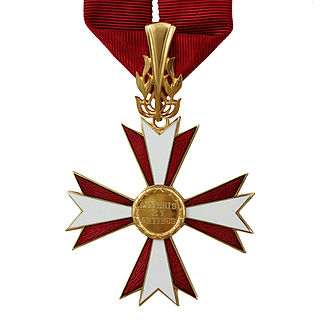
The Austrian Decoration for Science and Art is a state decoration of the Republic of Austria and forms part of the Austrian national honours system.
Nationality words link to articles with information on the nation's poetry or literature.
Samuel Phillips Savage was an American novelist and poet, best known for his 2006 novel Firmin: Adventures of a Metropolitan Lowlife. Other published works are The Cry of the Sloth, The Criminal Life of Effie O, and Glass.
Eine deutsche Revolution is a 1982 West German drama film directed by Helmut Herbst. It was entered into the 32nd Berlin International Film Festival.
Wolfgang Diewerge was a Nazi propagandist in Joseph Goebbels' Reich Ministry of Popular Enlightenment and Propaganda. His special field was anti-Semitic public relations, especially in connection with trials abroad, which could be exploited for propaganda purposes. He also played an essential role in the preparation of a show trial against Herschel Grynszpan, whose assassination attempt on a German embassy employee in Paris had been used by the Nazis as a trigger for the November pogroms in 1938. In 1941, his pamphlets on the so-called Kaufman Plan and the Soviet Union were published in print runs of millions. After the war, Diewerge managed to re-enter politics via the FDP North Rhine-Westphalia. However, the intervention of the British occupation authorities and a commission of the FDP's Federal Executive Committee put an abrupt end to this intermezzo. In 1966 Diewerge was convicted of perjury for his statements made under oath about the Grynszpan trial planned by the National Socialists. After all, he was involved in the Flick donations affair as managing director of two associations.
References
- 1 2 3 "Politischer Schriftsteller: Peter O. Chotjewitz gestorben". Der Spiegel (in German). 15 December 2010. Retrieved 7 July 2022.
- 1 2 John Sandford, "Chotjewitz, Peter O.", in Encyclopedia of Contemporary German Culture. Routledge, 2013, pp. 99-100. ISBN 1136816100.